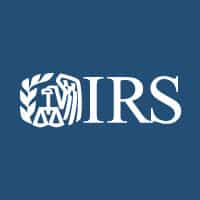 Though the Internal Revenue Service does not take the collection of taxes lightly, the IRS is prevented by law from attempting to collect assets that a person needs to survive and to live a normal life. These necessities have been dubbed allowable living expenses, and they are the expenses a person must be able to pay for regardless of their tax obligations.
Though the Internal Revenue Service does not take the collection of taxes lightly, the IRS is prevented by law from attempting to collect assets that a person needs to survive and to live a normal life. These necessities have been dubbed allowable living expenses, and they are the expenses a person must be able to pay for regardless of their tax obligations.
The IRS defines allowable expenses to include those expenses that meet the necessary expense test. The necessary expense test asks what expenses are necessary to support a taxpayer and his family, and critically, those expenses have to be reasonable to be considered allowable. IRS Allowable Living Expenses – Other Necessary Expenses, available at https://www.irs.gov/businesses/small-businesses-self-employed/collection-financial-standards.
Closely related to the allowable living expenses that the IRS recognizes for tax debtors are the national standards for key categories of expenses. Five national standards have been established for five basic necessities: food, housekeeping supplies, apparel and services, personal care products and services, and miscellaneous. The national standards are derivations of the statistics compiled by the Bureau of Labor Statistics (BLS) Consumer Expenditure Survey (CES). That survey endeavors to obtain information about households and families across the country and families, and looks into those families’ expenditures, income and household qualities.
The allowance for the miscellaneous category was expanded in April 2012 to include additional items. Thus, taxpayers can now use the miscellaneous allowance for various expenses including credit card payments, bank fees and charges, reading material and school supplies. Internal Revenue Service, Collection Financial Standards, available at https://www.irs.gov/Individuals/Collection-Financial-Standards.
While these allowable living expenses may seem fairly cut and dry, many of them require a deeper understanding of the tax code. The complexity of these recognized expenses and the standards they are based on increases when geographic differences in income and living expenses are taken into account. Such complexities may necessitate the advice of a licensed tax attorney that understands the tax code, and is up to date and abreast of recent changes in the tax code and in the IRS’ enforcement of the code.
If you are a tax debtor with concerns about expenses that you feel are necessary for your survival, you should not address those issues alone. Contact or call an experienced tax attorney at RJS Law at (619) 595-1655 to learn more about what expenses are allowable, and how you can protect yourself while still properly addressing your federal tax obligations.
______________________________________________________________________
Please keep in mind the information and advice presented in this blog is not intended to be used as formal legal advice. Contact a tax professional for personalized tax advice pertaining to your specific situation. While we try and answer all parts of the question when we write our blogs, sometimes there may be some left unanswered. If you have any questions about your problems with the IRS, SBOE, FTB, or BOE, or tax law in general, call RJS Law at (619) 595-1655.

Leave a Reply